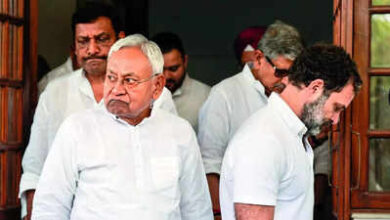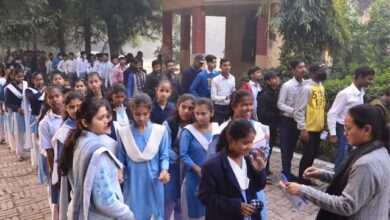Please pay attention! Not Cruelty in Calling Spouse ‘Bhoot’ or ‘Pishach’ The Patna High Court says
Patna: The Patna High Court has noted that an estranged couple’s use of “filthy language,” such as calling each other “bhoot” (ghost) and “pishach” (vampire), does not qualify as “cruelty.” The comments were made by Justice Bibek Chaudhuri’s one-judge bench, which was deliberating on a case submitted by Sahdeo Gupta and his son, Naresh Kumar Gupta, who both live in Bokaro, which is next to Jharkhand.

The father-son team had contested a ruling made by Naresh Gupta’s divorced wife’s hometown, Nawada, where she had filed a complaint, before the courts in the Nalanda district of Bihar. Back in 1994, the plaintiff had filed a lawsuit against her father-in-law and husband, claiming that they had subjected her to material and physical abuse in order to force her to demand a vehicle as part of the dowry.
After the father-son pair prayed, the case was subsequently moved from Nawada to Nalanda. They were sentenced to one year of hard labour by the Chief Judicial Magistrate in 2008, and their appeal to the Additional Sessions Court was turned down ten years later.
Meanwhile, the Jharkhand High Court approved the couple’s divorce. The divorced woman’s attorney opposed the petition before the Patna High Court, arguing that it was “a form of immense cruelty” for a lady to be called “bhoot” and “pishach” by her in-laws in the twenty-first century.
Still, the court noted that it was “not in a position to accept such an argument.”
In marriage relationships, particularly in unhappy marriage relationships, there have been cases when “both the husband and the wife” have “abused each other” by using “filthy language.”
It said, “However, none of these accusations fall under the category of cruelty.”
The high court also said that while there were “no specific, distinct allegations against either petitioner,” she had been “harassed” and “brutally tortured” by “all the accused persons.” As a result, the lower courts’ decisions were overturned, but “no order as to costs” was made.







